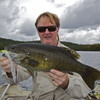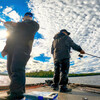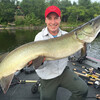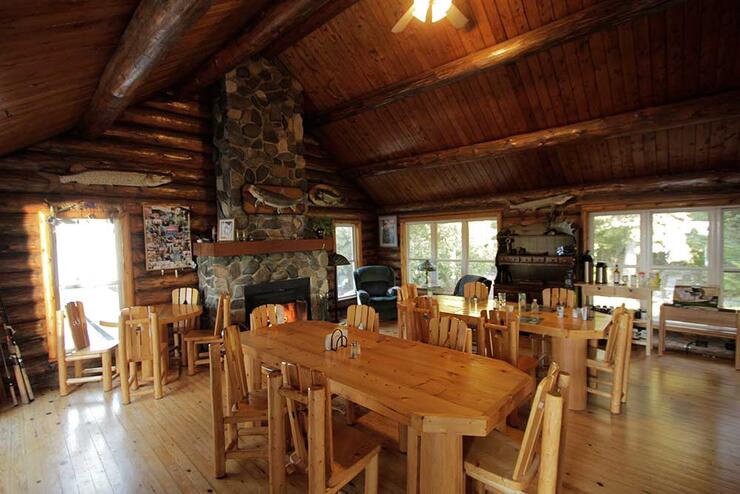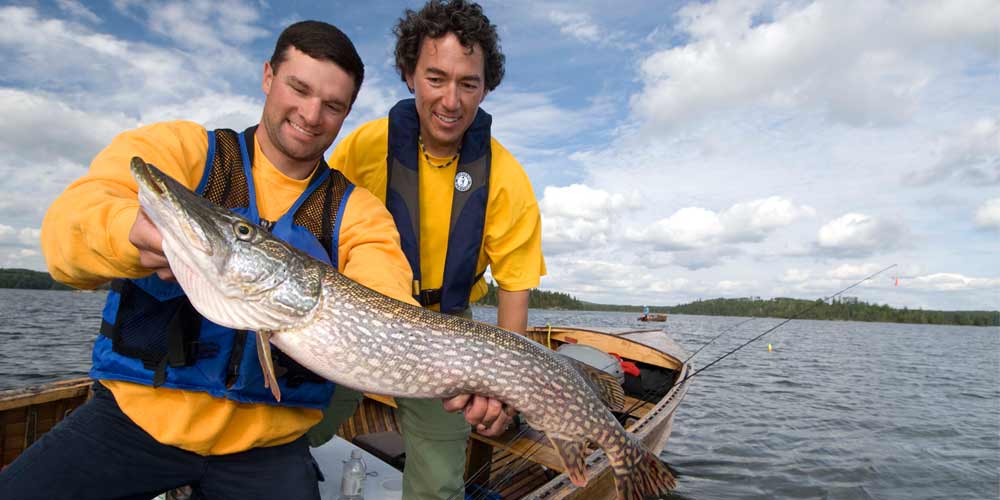Lakers of Lower Manitou
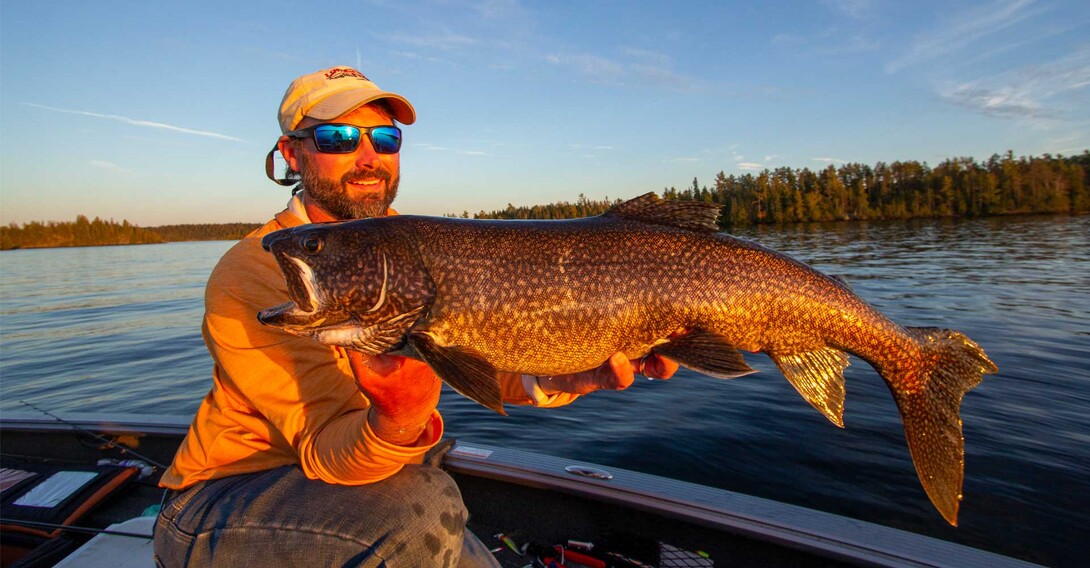
This past season, Jeremy Smith, Mike Hehner, and I spent a week filming in beautiful Sunset Country in Ontario. Our destination was Lower Manitou Lake, where we stayed at the Manitou Weather Station—located about 50 miles north of International Falls, MN.
“A trip to Lower Manitou Lake was an adventure I’d been anticipating for years,” Smith said. “We have never fished this body of water, and getting the opportunity to explore and discover spots on a new-to-me lake is one of my favourite things to do. One look at the lake on a map, and your mind quickly starts to daydream about all the potential places to catch fish. Points, bays, deep water, neck-downs, mid-lake hump, massive boulder fields — the potential fish-holding spots are endless. In short, the entire adventure and experience exceeded our expectations.”
Lower Manitou Lake is a crystal clear lake with a diverse rocky structure, including many islands, shoals, deep ridges, sunken humps, and deepwater weed beds. It’s also a nutrient-rich lake capable of raising massive schools of baitfish.
Although our primary objective was to film multiple lake trout television shows, Manitou has fantastic fishing for many species. Muskies are popular and plentiful, including fish that stretch over 50 inches. Smallmouth bass and pike are prolific throughout the lake, and there’s a population of big largemouths, too. And although walleyes are not numerous, the lake raises giants — some fish tipping the scale between 10 and 13 pounds.
Manitou Weather Station Fishing Lodge is nestled in a protected cove, far from the hustle and bustle of everyday life, but modern enough to make you feel right at home. They have four cabins within walking distance from the main lodge, each with modern amenities, power, running water, bathrooms, separate bedrooms, a full kitchen and comfortable furniture.
At the main lodge, where they serve daily meals, there’s also a hot tub, sauna, communal deck, swimming dock, spacious dining area, fire pit, and more. They have rental fishing boats if you are planning a DIY fishing trip and experienced and knowledgeable guides to help you find and catch fish. And of course, you can bring your boat. How about the WiFi? Absolutely! Upload and download speeds at the main lodge were fast, especially considering we were in the middle of a forest. I tested 60 megabytes for upload and 45 megabytes for download.
Although we brought gear to catch everything swimming in the lake, our target species were lake trout. Late summer leading into early Fall is primetime for lakers, and Lower Manitou Lake is one of the best Ontario lake trout lakes and boasts trout of all sizes, including an excellent chance to catch trophy-size fish.
Again, we were there during fall, near the end of the lake trout season. Lake trout are fall spawners, so the fish migrate and congregate in deeper water near the shallow water spawning grounds. Modern electronics and mapping made the search for fish much more efficient, given our lack of experience on the lake. After learning our way around, we eliminated potential zones and discovered several areas where large schools of baitfish and lakers had congregated.
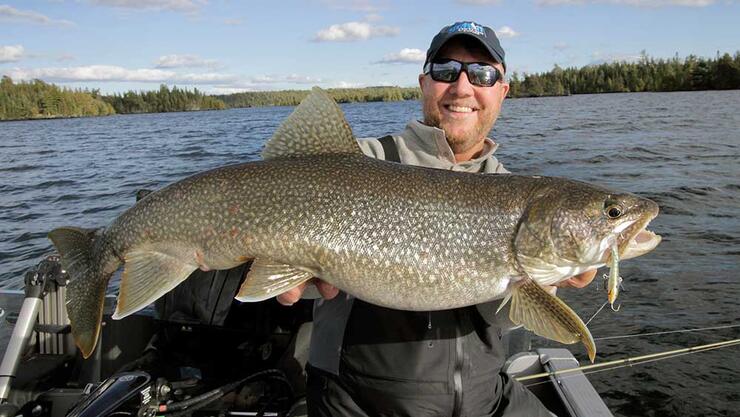
(Photo credit: The Ontario Experience)
There are several ways to catch lake trout. Trolling deep water with the downriggers is a popular tactic, and a three-way rigging flutter spoon seems to produce all across North America. One deadly effective method we used was trolling crankbaits with snap weights to position crankbaits exactly where the fish were suspended in the deeper water.
Vertical jigging is hands-down our favourite way to catch brute-force lakers. After finding a pod of fish, we used our Minn Kota Spot-Lock feature on our electric trolling motor to hover right over the school. Heavy hair jigs, slab spoons like a Crippled Hearing, blade baits, and horizontal swim jigs, like Rapala Jigging Raps and Flat Jigs all produced.
“I don’t know how many fish we caught on this trip, but it was a lot,” Smith claims. “Probably a better way of describing the action would be how often one of us wasn’t hooked up or dealing with a lake trout — hardly ever. It was constant and fairly unbelievable.”
Trout sometimes bite as fast as you can get a lure in front of them. Other times, they rush your lure time and time again — only to snub your offering at the last second. Throughout each day of fishing, it was fascinating to notice their mood shift and how specific baits and tactics would start outperforming all other options. They were eating ciscoes that were about 3.5 inches long. As soon as we dropped a JiggingRap or blade bait of similar proportion, we were hooked up often.
One tactic I love catching lakers on is a presentation called vertical casting. Blade baits have a great baitfish profile, plus, the lure design offers lots of flash and vibration. I start by deploying the lure all the way to the bottom. Even if you spot fish on the sonar following bait, keep dropping it past the fish. Next, I began to reel the bait up two to three cranks, followed by a faster lift-put with the rod tip, then a soft and subtle pause before I start reeling again. The trout almost always eat the bait on the pause. Reeling with the same cadence causes the fish to chase the bait, and the predictable pauses allow them to ambush it with a vengeance. This tactic can often be so effective that you can pretty much predict when you’ll feel the tug.
Jeremy Smith was having a blast using a Rapala Jigging Raps. The #7 size was almost the exact size as the baitfish the lakers were eating. “Using my electronics, I was able to pinpoint the exact depth the fish were staging. I then positioned my lure above the fish and stayed committed to jigging and teasing the artificial lure above the fish. For instance, if they were marking at 60 or 70 depth, I kept the bait working at 45 or 50 feet—never dropping below the marks I was seeing on the graph. In clear water, trout can see for a long way, so I was confident I could eventually tempt fish up to strike, and they did.”
Mike Hehner is an excellent and seasoned angler. Over the years he’s collected hoards of tackle and gear, but he loves spending winter months making his custom hair jigs. Coincidentally, using hair jigs is again as popular today as it once was 60 or more years ago—and they’ve always been a deadly option for lakers. Once you get a feel for how the hair jig behaves in the water, there are specific ways you can work the bait that seem to trigger lakers to strike.
“I like to start by dropping the jig to the bottom,” explains Hehner. “Then I’ll begin to slowly reel and hop the bait upward, never pausing the bait. Reel, reel, reel, bounce, reel, bounce, reel, reel, reel. It’s a deadly move that most lakers can’t resist. However, if you can see them on sonar, another great trick is to get them chasing the bait pretty fast, when they seem hesitant to strike is to drop the bait below the fish, then when you see the fish turn downward, swim the jig up and away from the fish. Casting the jig away from the boat, counting it down to an estimated depth, and slowly retrieving it horizontally to the boat is another easy and deadly option.”
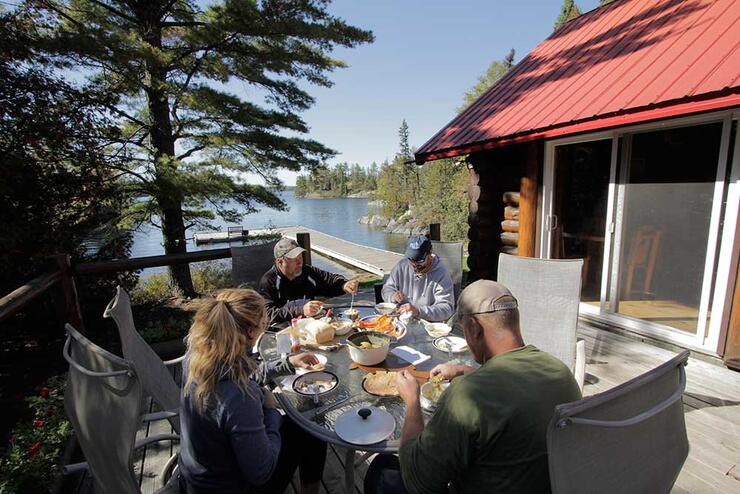
(Photo credit: The Ontario Experience)
By the end of the trip, we had caught so many lake trout and had so much fun fishing; we instantly were plotting how and when we were going to make it back to this special place. The accommodations are comfortable, modern, and the family-hosted business makes the experience inviting and relaxing. Unique to Manitou, the seemingly endless and breathtaking landscape noticeably change as you meander to different parts of the lake. Jeremy, Mike and I have had the opportunity to travel and fish all over Ontario, but it’s safe to say that our trip to the Weather Station on Lower Manitou was one for the record books.
Sunset Country
https://visitsunsetcountry.com/
Manitou Weather Station
https://manitouweatherstation.com/
The Ontario Experience
https://theontarioexperience.tv/
Recommended Articles
Ontario Brook Trout
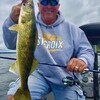
3 Great Ontario Walleye Destinations

10 Facts About Lake of the Woods
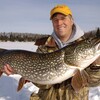
Eating Northern Pike

Labour Day Lunkers: Why Fall is the Ultimate Time for Lang Lake Bass
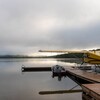
5 Tips for your Fly-in DIY Adventure
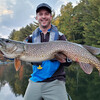
5 Lakes, 4 Seasons, and Plenty of Fish
Awesome Algonquin
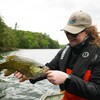
Fishing The Shoulder Season
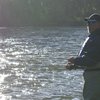
5 Places to Shore Fish
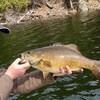
Top 5 Flies for Smallmouth Bass
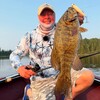
Smashing Topwater Smallmouth in the Heart of Walleye Country
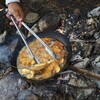
The Perfect Shore Lunch

Top 5 Baits for Smallmouth and Largemouth Bass
Fishing and Foraging

Ten Mile Lake Lodge
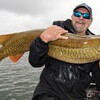
St. Francis Titans
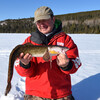
A Whole Lota Lovin'
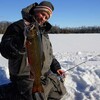
Shoreline Strategies
